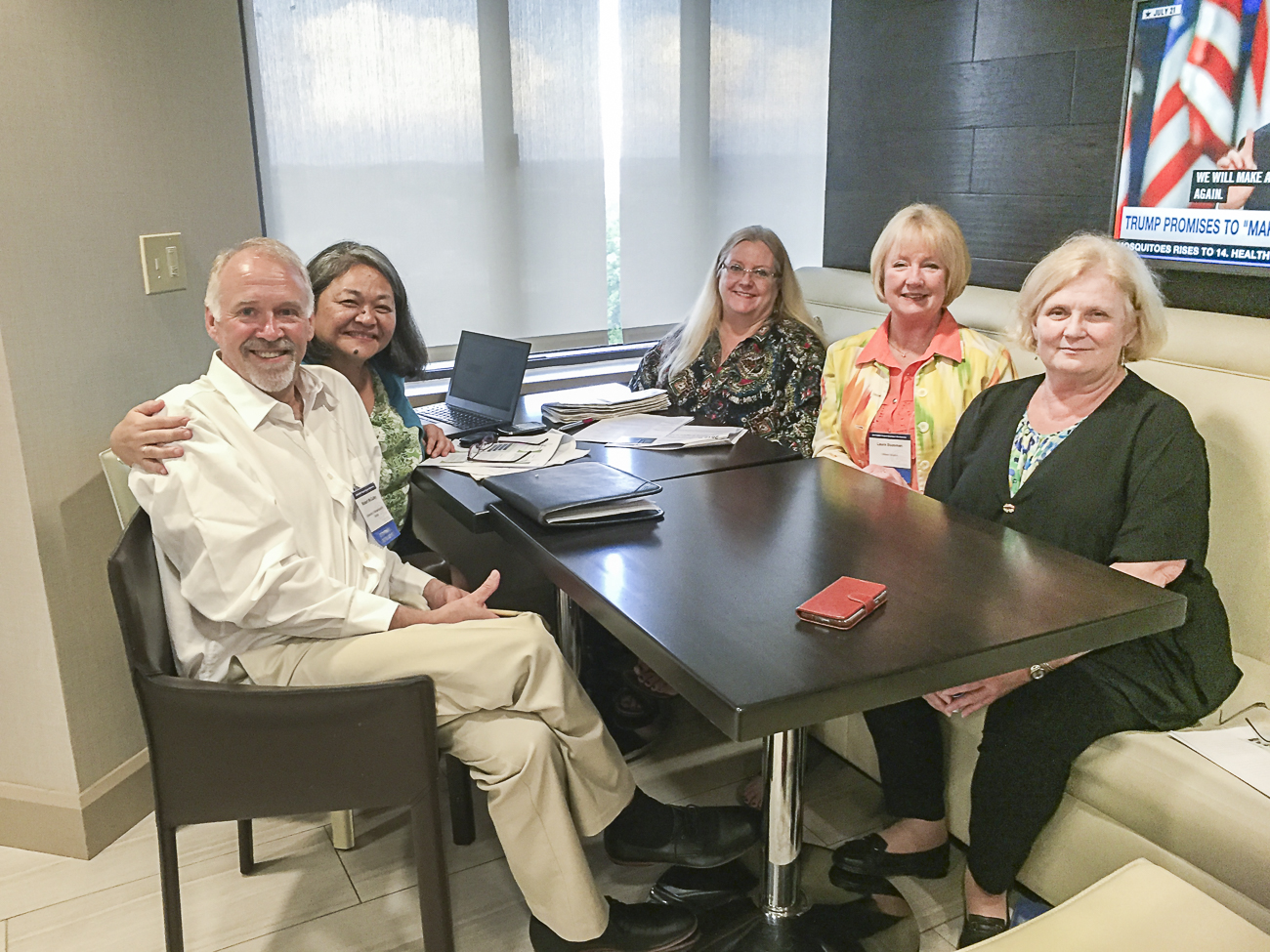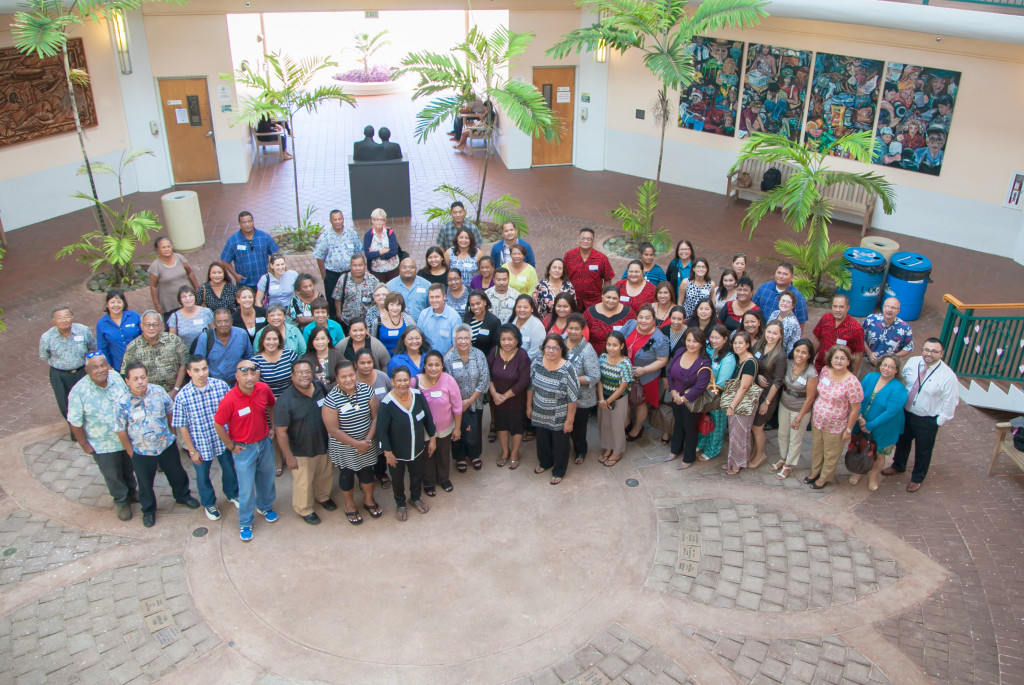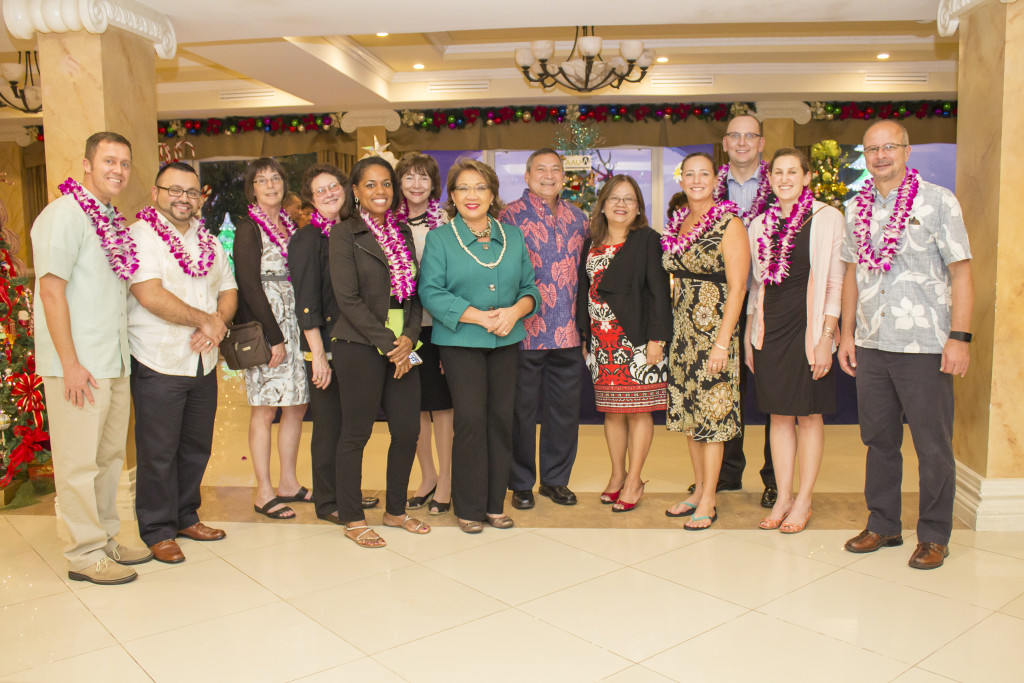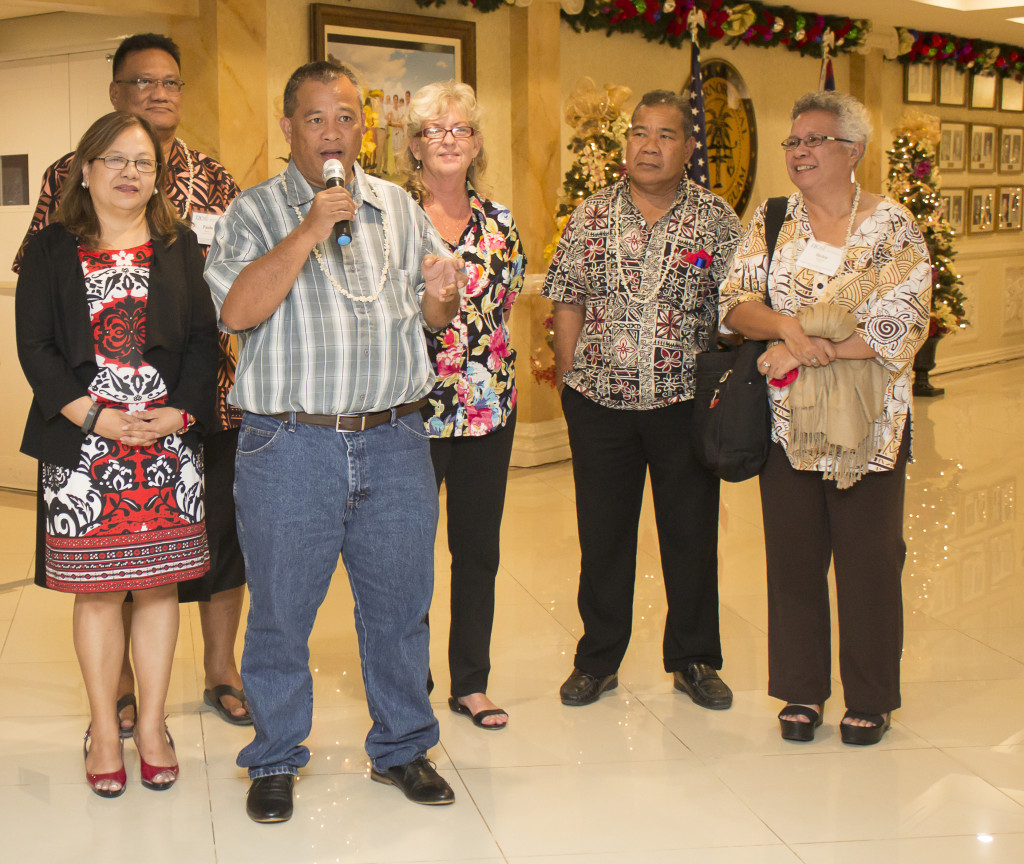The island value of living in a spirit of togetherness and belonging was obvious at the Pacific State Systemic Improvement Plan (SSIP) Collaborative, “Our Pacific Journey for Improvement,” as the six Pacific entities convened to focus on improving educational results of all students with disabilities in the Pacific. Not even the threat of a storm could dampen the spirit of community that was nurtured throughout the week-long activities. The event was held from October 7-10 at the Westin Resort Guam and from October 11-12 at the Guam Department of Education (GDOE) Main Building.
The collaborative was hosted by GDOE with support from the U.S. Department of Education (USDOE) Office of Special Education Programs (OSEP). The six participating Pacific entities were American Samoa, Commonwealth of the Northern Mariana Islands (CNMI), Federated States of Micronesia (FSM), Guam, Republic of Palau, and Republic of the Marshall Islands. Each entity sent teams comprised of entity-level general and special education administrators and specialists; school-level principals; general and special education teachers; coaches/mentors; and parents of students with disabilities to participate in the convening.
The convening engagement activities were facilitated by technical assistance providers from four National Centers, the Regional Educational Laboratory-Pacific (REL-Pacific), and Guam CEDDERS. The facilitators included:
•Sheryl Lazarus and Maureen Hawes from the National Center on Educational Outcomes (NCEO);
•Cesar D’Agord with virtual support from Kathleen Pfannenstiel from the National Center for Systemic Improvement (NCSI);
•Amy Peterson from the National Center on Intensive Intervention (NCII);
•Sarah Sayko and Carol Dissen from the National Center on Improving Literacy (NCIL);
•June De Leon and Josephine Cruz from Guam CEDDERS, with support from consultants Nieves Flores and June Quitugua; and
•Christina Tydeman, Meagan Taylor, and Dale Lewis from the Regional Educational Laboratory (REL) Pacific.
The overall goal of the collaborative was to improve educational results of all students with disabilities in the Pacific entities by focusing on each entity’s capacity to increase the reading achievement of students with disabilities within a multi-tiered system of supports. In doing this, the resulting outcomes of the collaborative were an enhanced understanding of the following: assessment systems, infrastructure systems to sustain and scale-up, sustainable job-embedded professional development, sustainable coaching supports, and increased engagement of key stakeholders, in particular parents of students with disabilities.
The regional event was years in the making and resulted in increased collaboration and partnerships across the Pacific region. The learning and partnerships made as result of the Pacific SSIP Collaborative will surely be enduring and a hallmark of the persistent Pacific spirit.

Lazarus, NCEO; Carol Dissen, NCIL; Amy Peterson, NCII; June De Leon; Sarah Sayko, NCIL; Dale Lewis, REL Pacific; Christine Tydeman, REL Pacific; Maureen Hawes, NCEO;
Meagan Taylor, REL Pacific; and Cesar D’Agord, NCSI.





